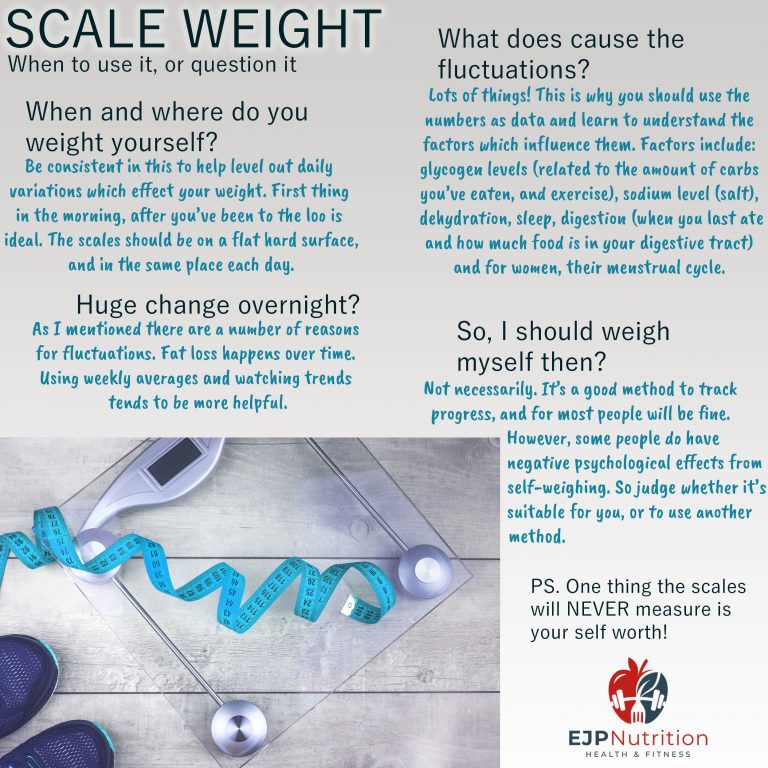Scale weight can be one of those things that is divisive. So let me start by saying your goals absolutely don’t need to have anything to do with your weight. They can be to improve your health, get stronger, feel fitter. Now a lot of those may lead to weight loss from the changes you make. But the intent and reason behind your goals don’t need to be weight or size related.
My own ‘fitness journey’ (cringe I hate that phrase, but sometimes it fits) losing weight was way down my priority of goals. Health, rehab and fitness were all much higher. But by instilling healthier habits from where I was at, weight loss was somewhat inevitable. Keep in mind that may depend on what your starting point is.
One review looked at whether there is a psychological impact from self-weighing. While the results found no association between that and body-related attitudes and disordered eating, it did show that some people (mostly younger and female) had a negative effect to their psychological function from weighing themselves.
It can be noted that self monitoring is one of the common factors in people who successfully lose weight, and maintain that loss. A study by Wing found; self-weighing was associated with increased dietary restraint and decreases in disinhibition (loss of control over eating), depressive symptoms and binge eating episodes.
But again this is one of those areas where it’s an individual choice, and how a person views the scales should always be taken into account. Some people disconnect their emotions to the numbers and use them as data (I fall into this category myself). But for others it does create a much more negative effect and if that’s the case there are other ways of monitoring progress. It doesn’t start and end with the scales. They’re just one tool.
References: Mac Nutrition Uni, Benn at all 2016, Wing et al 2007
(Reposted from Instagram)


